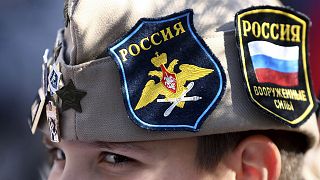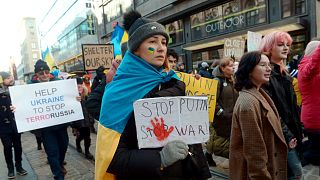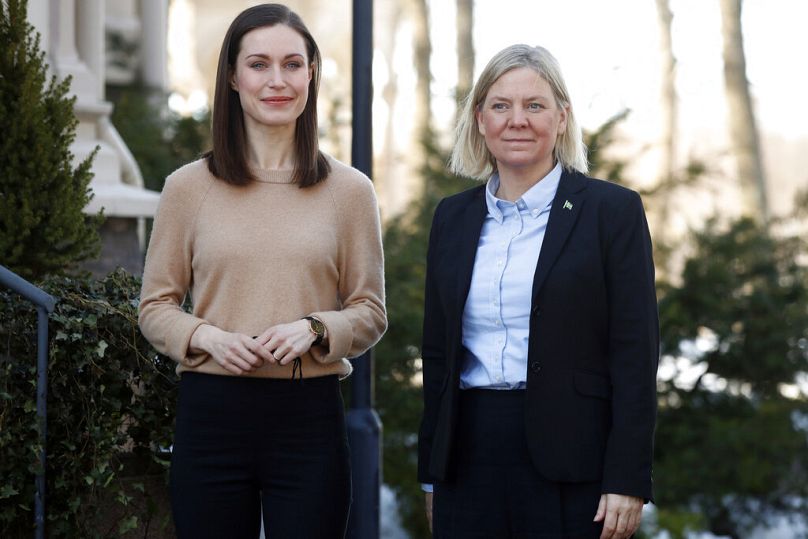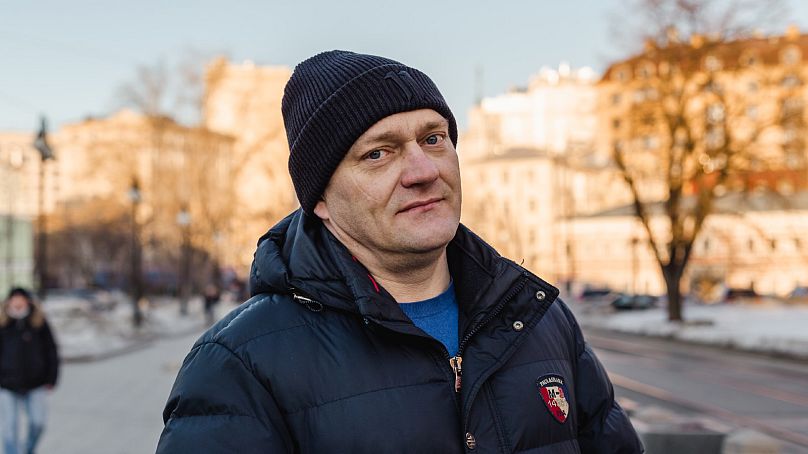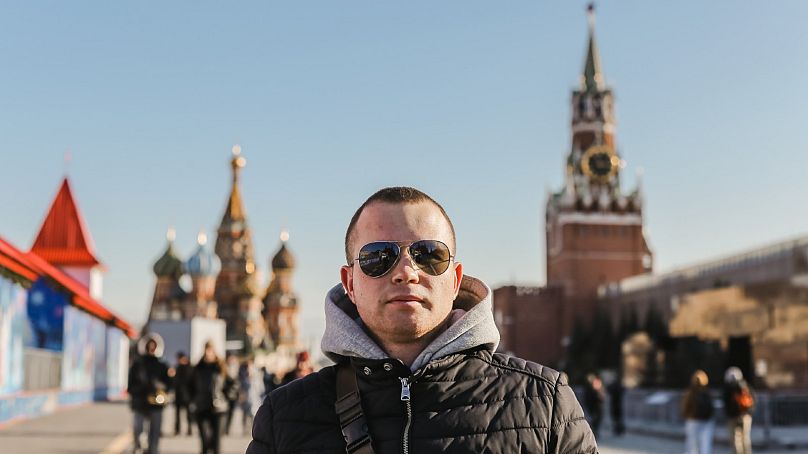The current state of international politics paints a grim picture of a dissolution of a universal value-based moral compass.

UN Ambassadors vote during a United Nations Security Council meeting, on a resolution regarding Russia's actions toward Ukraine, at the United Nations Headquarters in New York City, February 25, 2022. Photo: Reuters/Carlo Allegri
Deepanshu Mohan
A lot is being said on India’s position in the UN on the Ukraine-Russia crisis. The position, thus far, has been broadly of ‘abstention’ and ‘silence’. The Indian government has also failed to explain the causal reasons for its repeated vote and its inability to call a spade-a-spade given how Russia’s military aggression in Ukraine is both unprovoked and in clear violation of basic tenets and principles of international law.
I argued recently that a prolonged ‘silence’ of India – and/or the inability of the Modi government to condone or condemn Russia’s actions in Ukraine – with each passing week may indirectly affect us (and our interests) in the longer term, despite the bonhomie we might share with Russia. If A’s friend commits murder and A maintains a position of ‘silence’ or gives the friend a free pass, what does it say about A and her/his moral character?
Yes, this isn’t India’s war. And, yes, maybe the Indian government, being late in evacuating its own citizens (given how late the advisories for evacuation were issued) didn’t have a choice but to be ‘silent’ for the first couple of weeks, given the administration had to work with both Russian and Ukrainian authorities to get its citizens out. That’s understandable.
But, once the evacuation of Indians is complete (as it is about to be), India’s geopolitical position of ‘silence’ will increasingly be questioned (in a way it already is). More importantly, India (like many other democratic nations) has a moral responsibility to say more – and do more – to counter Putin’s Russia.
Also read: India’s Tightrope Walk on Russian Invasion of Ukraine May Have Long-Term Consequences
To many ultra-realists/supporters of the pro-government position (there are many shouting in TV studios now), the very mention of the word ‘moral’ or ‘moral responsibility’ seems problematic. Whataboutery has been common in the discourse too. Ultra-realists may argue what’s so special about condemning a great power for this crisis – or ask why India should support the West’s attack on Russian actions when Americans too have been guilty of intervening in other nations and having its own wars (from Vietnam to Iraq to Afghanistan).
Still, it would be morally obtuse to ‘compare’ one great power’s military aggression to another.
It is true how ‘American exceptionalism’ has been entrenched in 20th century international politics discourse and was part of shaping a US-led international order; an order which is on the verge of collapse now. But, as Theodore Roosevelt put it a century ago,
“Our chief usefulness to humanity rests on combining power with high purpose”.
Based as much as on ideas of ethnicity, America has long seen itself ‘as a cause as well as a country’.
Dominant powers surely promote their political values. Imagine how the world would look today if Adolf Hitler had emerged victorious in World War II or if Joseph Stalin’s Soviet Union had prevailed in the Cold War. Of the three great ideological narratives of 20th century – fascism, communism and liberalism – only the latter was left standing at its end.
US President Woodrow Wilson, recognised as a ‘thought leader’ in the American and post-World War II international order, offered a liberal internationalist project with two main aims: to tame international anarchy through the erection of binding international law and organisation, and to change other states in the system and inch them toward constitutional democracy.
Wilsonian liberalism – anchored by the US – sought a world made safe for democracy. Jawaharlal Nehru and Mahatma Gandhi’s views too from India were in broader convergence with this thought. Alas, the current state of international politics paints a grim picture of a dissolution of a universal value-based moral compass.
As Joseph Nye argues in his recent book Do Morals Matter?,
“The American order after 1945 (too) was neither global nor always very liberal. So-called American hegemony left out more than half the world (the Soviet bloc and China) and included a number of illiberal authoritarian states. (At the same) Defenders argue the liberal international order, albeit imperfect, made the world a better place because it produced an era of unprecedented growth in the world economy, which raised hundreds of millions of people out of poverty and allowed the spread of liberty and democracy. Future presidents will have to make moral choices about foreign policy in a world where the post-1945 Pax Americana and Wilsonian vision have changed.”
Realists who trace their (western) intellectual ancestry to classic thinkers like Hobbes, Machiavelli, Thucydides argue that in an anarchic world, foreign policy is largely ‘amoral’. Thucydides famously said,
“The powerful do what they will, and the weak suffer what they must.”
Nevertheless, humans exercising ‘selfishness’ and ‘aggression’ didn’t make us the most dominant species on the planet. It was because of our ability to exercise restraint, to cooperate, to reason, with both intuition and prudence, that made us dominant and standout.
It is important for leaders, especially in the current context, to realise and understand how both intuition and reason are core parts of moral reasoning, and how they must be put into thought for principle, policy and practice.
Practicing an ultra-realist view that ethics or moral reasoning has nothing to contribute because there are no real choices in foreign policy and only one’s own country counts, is a misconception. Another misconception may confuse a leader’s moral character with his moral consequences, and still another makes judgments based on moral rhetoric than results. Vladimir Putin may give a ‘moral’ reason for invading Ukraine, but that can’t be accepted.
Also read: Citing Need To Keep Door Open for Diplomacy, India Abstains From UNSC Vote on Russia
Nye’s contribution is critical in this regard. Nye argues,
“As a practical matter, in our daily lives most people make moral judgments along three dimensions: intentions, means, and consequences. Intentions are more than just goals.”
Lyndon Johnson may have had ‘good’ intentions when he sent American troops to Vietnam, but a leader’s good intentions, according to Nye, are not proof of what is misleadingly called “moral clarity”. The second important dimension of moral judgment is means. How do we treat others? Does a leader consider the ‘soft power of attraction’ and ‘the importance of developing the trust’ of other countries?
According to Nye, when it comes to ‘means’, leaders must decide how to combine the hard power of inducements and threats, and the soft power of values, culture and policies that attract people to their goal.
A leader who pursues moral but unrealistic goals or uses ineffective means can produce terrible moral consequences at home and abroad. Putin’s actions in Russia resembles to that of a war criminal so far. His military commands have bombed civilian areas inside Ukraine, killed innocent people and attacked maternity hospitals. His actions, at the very least, must invoke a collective sense of moral conscience amongst nations – including India – to put their faith in peace and mutual-cooperation.
This isn’t required for a ‘West-enabled narrative’ or for enforcing ‘American moralism’, but is critical for securing international peace and a stable world order.

Deepanshu Mohan is associate professor of Economics and director, Centre for New Economics Studies (CNES), Jindal School of Liberal Arts and Humanities, O.P. Jindal Global University.
